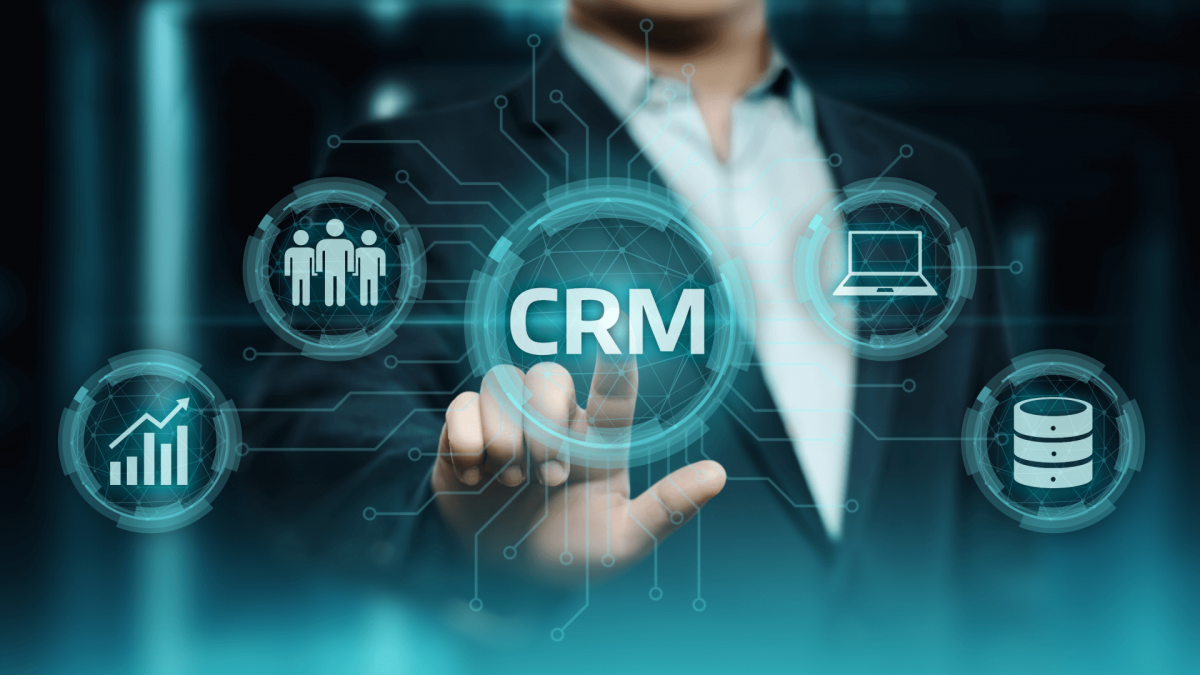How Customer Relationship Management in Manufacturing Industry Drives Growth and Efficiency
Manufacturers face increasing pressure to deliver high-quality products, maintain customer satisfaction, and optimize operational efficiency. Long sales cycles, complex distributor relationships, and the challenge of managing data across departments make these goals even harder to achieve. Many manufacturing companies still rely on spreadsheets or outdated CRM systems that create inefficiencies and leave potential customers untapped.
Enter Customer Relationship Management (CRM) systems—a game-changing tool for streamlining processes, enhancing sales team productivity, and nurturing better customer relationships. For manufacturers, CRMs provide a structured, centralized way to manage sales pipelines, deliver accurate forecasts, and ensure top-notch customer support.
One standout solution is ThinkFuel’s Revenue Engine CRM, specifically designed for manufacturers. This turnkey system addresses industry-specific challenges while driving measurable results. From reducing the sales cycle to improving customer experiences, Revenue Engine CRM transforms how manufacturing businesses operate.
In this guide, we’ll explore the unique pain points faced by manufacturers, how CRM systems solve these issues, and why Revenue Engine CRM is the ultimate choice for improving your bottom line.
Looking for a Turnkey CRM for Your Business?
Then you're going to LOVE Revenue Engine.
Challenges in the Manufacturing Industry
The manufacturing industry is no stranger to complexity. Unlike other sectors, manufacturers often juggle long sales cycles, intricate distributor networks, and high-stakes customer relationships. These unique challenges can strain resources, hinder efficiency, and leave growth opportunities on the table. Let’s examine some of the key pain points manufacturers face today:
1. Managing Distributors and Multi-Tiered Customer Relationships
Manufacturers often work with distributors, suppliers, and end customers across multiple tiers. Keeping track of these relationships—and the corresponding sales data—can be overwhelming without a structured system in place. Mismanaged data leads to inconsistent communication and missed opportunities for collaboration.
2. Long Sales Cycles and Follow-Up Delays
The manufacturing sales cycle tends to be lengthy and involves multiple decision-makers. Delayed follow-ups, incomplete information, or a lack of process standardization can stall progress, costing valuable deals. Without a clear system to track sales pipelines, teams often lose sight of where a prospect stands, leaving potential customers unconverted.
3. Inconsistent Communication and Data Silos
Departments like sales, customer service, and marketing often work in silos, leading to poor visibility across teams. For example, the sales team might lack updates on an ongoing customer support issue, or marketing might not have insights into the sales process to refine campaigns. This lack of alignment hinders both the customer experience and operational efficiency.
4. Inefficiencies of Spreadsheets and Outdated CRMs
Many manufacturers still rely on spreadsheets or legacy CRM systems to manage their sales and customer data. Spreadsheets are prone to errors, lack real-time updates, and fail to scale with a growing business. Similarly, outdated CRMs often lack the automation and customization features needed to handle the manufacturing industry's demands, leading to inefficiency and lost revenue opportunities.
5. Missed Opportunities for Accurate Forecasting
Accurate forecasts are critical for manufacturers to allocate resources effectively and meet customer demand. Without real-time insights into the sales pipeline or historical trends, creating reliable forecasts becomes guesswork. This directly impacts production planning, inventory management, and overall profitability.
The common thread in all these challenges is the lack of a centralized, efficient system to streamline operations and drive better results. Modern CRM platforms, like Revenue Engine CRM, are designed to solve these exact issues, providing manufacturers with the tools they need to thrive.
How CRMs Address Manufacturing Challenges
A robust Customer Relationship Management (CRM) system is more than just a tool—it’s the backbone of streamlined operations and improved customer experiences in the manufacturing industry. By addressing key pain points like data silos, lengthy sales cycles, and inefficient processes, CRMs empower manufacturers to work smarter and scale faster. Here’s how:
1. Centralizing Data for Better Visibility
CRMs provide a centralized hub for all customer, distributor, and sales-related information. Instead of juggling spreadsheets or outdated systems, your sales team can access everything they need in one place—from customer histories to sales pipeline progress. This visibility ensures teams are always on the same page, reducing miscommunication and preventing opportunities from slipping through the cracks.
For instance, with Revenue Engine CRM, manufacturers can track distributor relationships, monitor potential customers, and analyze real-time sales data to prioritize high-value deals.
2. Automating Repetitive Tasks
One of the most time-consuming challenges in manufacturing is managing follow-ups, data entry, and other repetitive tasks. A CRM automates these processes, enabling sales reps to focus on more strategic efforts, like closing deals and nurturing customer relationships.
For example, CRMs can:
- Automatically schedule follow-up reminders for sales reps.
- Assign leads to the right team members based on pre-defined criteria.
- Send personalized email updates or thank-you messages post-purchase.
Automation ensures tasks are completed on time, every time, improving efficiency across the sales process.
3. Real-Time Sales Pipeline Tracking and Forecasting
A CRM system offers tools to track the sales pipeline in real time, helping teams understand where each lead stands and what actions are required to move them closer to conversion. This clarity improves decision-making and keeps the sales process on track.
CRMs also provide forecasting capabilities by analyzing historical data and current trends. Manufacturers can predict sales outcomes more accurately, enabling them to plan production, inventory, and resource allocation with confidence.
4. Streamlining the Sales Process
CRMs bring structure to complex sales cycles by standardizing workflows and communication. Manufacturers can define sales stages, assign tasks, and ensure consistent messaging throughout the sales cycle. This level of organization eliminates guesswork and ensures no lead or opportunity is overlooked.
For example, Revenue Engine CRM’s customizable playbooks allow manufacturers to tailor their sales process while maintaining professionalism and consistency across all interactions.
5. Enhancing Customer Support and Satisfaction
Customer satisfaction is a cornerstone of successful manufacturing businesses. CRMs enhance customer support by maintaining detailed records of customer interactions, service history, and preferences. This data allows teams to deliver personalized service and resolve issues quickly.
A satisfied existing customer is more likely to place repeat orders or recommend your business, making CRM-driven customer services a direct contributor to improving the bottom line.
6. Use Cases for CRMs in Manufacturing
CRMs are versatile tools that go beyond managing sales. In the manufacturing sector, they can be used for:
- Supplier Relationship Management: Track and manage supplier contacts, agreements, and order histories.
- Order Tracking: Monitor the status of orders, ensuring timely delivery and proactive communication with customers.
- Marketing Campaigns: Align marketing efforts with sales data to create targeted campaigns that resonate with your audience.
By addressing these critical areas, CRMs provide manufacturers with the agility they need to stay competitive and meet their customers’ expectations.
Looking for a Turnkey CRM for Your Business?
Then you're going to LOVE Revenue Engine.
Why Revenue Engine CRM is Perfect for Manufacturers
Manufacturers need a CRM solution that understands their industry’s unique challenges, such as long sales cycles, multi-tiered distributor relationships, and the need for accurate forecasting. ThinkFuel’s Revenue Engine CRM is purpose-built to meet these demands while providing fast implementation, ease of use, and scalable features that adapt to business growth. Here’s why it stands out as the ultimate CRM for manufacturing businesses:
1. Fast Implementation
Unlike traditional CRMs that take weeks—or even months—to set up, Revenue Engine CRM is ready to deploy in just days. It comes pre-built with workflows, email sequences, and dashboards tailored to manufacturing sales teams. This quick implementation saves time and allows your sales team to focus on driving revenue rather than navigating a lengthy onboarding process.
2. Structured Sales Pipelines
Revenue Engine CRM eliminates guesswork from the sales process. It provides pre-defined sales pipelines that track every lead and opportunity from the initial inquiry to final conversion. With clear visibility into each stage of the sales cycle, manufacturers can ensure no lead is overlooked, and follow-ups are timely and effective.
For example, distributors can be categorized by pipeline stage, enabling teams to focus on closing high-priority deals while nurturing others.
3. Automation to Streamline Processes
Manual tasks like lead assignments, follow-up reminders, and data entry eat up valuable time. Revenue Engine CRM automates these processes, enabling sales reps to concentrate on building relationships and closing deals.
Key automation features include:
- Automatic notifications for follow-ups.
- Scheduled emails for marketing campaigns and updates.
- Activity tracking without manual input, providing a seamless record of interactions with potential and existing customers.
4. Customizable Playbooks
Consistency is vital in the manufacturing sales process, especially when managing complex relationships. Revenue Engine CRM’s customizable playbooks ensure professional, consistent communication at every stage. These playbooks act as a guide for your sales team, outlining the best practices for outreach, follow-ups, and closing deals.
For instance, a standardized email template for distributor inquiries ensures messaging remains aligned with your brand while reducing response time.
5. Seamless Integration with HubSpot Ecosystem
Revenue Engine CRM integrates effortlessly with over 1,700 tools in the HubSpot ecosystem, allowing manufacturers to sync their existing platforms. Whether it’s ERP systems, email marketing tools, or inventory management software, this CRM ensures data flows seamlessly across your business.
This integration capability prevents information silos and enables manufacturers to align sales, marketing, and operations under a unified system.
6. Scalable for Growth
As manufacturers grow, their CRM needs to scale with them. Revenue Engine CRM is designed to accommodate small to mid-sized manufacturing businesses, providing features that evolve with your needs. Whether you’re expanding your sales team, managing more distributors, or launching new product lines, this CRM has the flexibility to support your growth.
7. Real-Life Applications of Revenue Engine CRM
Here’s how manufacturers are benefiting from Revenue Engine CRM:
- Reduced Lead Response Time: By automating lead notifications and task assignments, one manufacturing client reduced response times by 50%, resulting in higher conversion rates.
- Improved Distributor Communication: A manufacturer managing dozens of distributors streamlined their communication through automated email updates and a centralized distributor database, improving relationships and repeat sales.
- Enhanced Sales Cycle Performance: With clear visibility into the sales pipeline, manufacturers tracked deals in real time, reducing their average sales cycle by 20%.
Why Revenue Engine CRM Outshines Other Solutions
Compared to generic CRM platforms, Revenue Engine CRM was built with manufacturers in mind. Its manufacturing-specific features, fast setup, and integration flexibility make it a perfect fit for businesses transitioning from spreadsheets or struggling with underperforming CRMs.
ROI of Using Revenue Engine CRM
Investing in a CRM system like Revenue Engine CRM delivers measurable benefits for manufacturing businesses. By streamlining operations, improving sales efficiency, and enhancing customer relationships, manufacturers can achieve significant returns on investment. Let’s break down how Revenue Engine CRM boosts profitability and future-proofs your sales strategy:
1. Shorter Sales Cycles
Manufacturing sales cycles are often lengthy due to multiple decision-makers, complex product requirements, and follow-up delays. Revenue Engine CRM simplifies the process by providing real-time sales pipeline tracking, automated follow-ups, and structured workflows.
For example, manufacturers using Revenue Engine CRM have reported a 20% reduction in average sales cycle times. Faster deal closures mean increased revenue and better resource allocation.
2. Increased Revenue and Conversion Rates
With features like automation, accurate forecasts, and customizable playbooks, Revenue Engine CRM helps manufacturers close more deals. By ensuring no lead slips through the cracks and by optimizing communication, businesses see higher conversion rates.
Case studies show that manufacturers implementing Revenue Engine CRM achieved:
- A 15% increase in conversion rates due to faster response times.
- A 25% boost in revenue by streamlining their sales process.
3. Improved Team Productivity
Manual tasks such as data entry, lead assignments, and follow-up scheduling often consume valuable time. Revenue Engine CRM automates these tasks, enabling sales teams to focus on what they do best—selling.
One manufacturing client reported that their sales team was able to save 30% of their time on administrative work, redirecting those hours toward nurturing relationships with potential and existing customers.
4. Enhanced Forecast Accuracy
Accurate forecasts are critical for manufacturers to manage production, inventory, and resources. Revenue Engine CRM’s data analytics and reporting tools provide actionable insights, helping businesses create forecasts based on real-time sales pipeline data.
Manufacturers using the system have noted an improvement of up to 40% in forecast accuracy, allowing them to avoid overproduction or stockouts while meeting customer demand more effectively.
5. Stronger Customer Satisfaction and Retention
Happy customers are repeat customers. By centralizing data and improving communication, Revenue Engine CRM empowers businesses to deliver top-notch customer support. Personalized interactions, quicker issue resolution, and follow-ups create better customer experiences.
Manufacturers have reported a 25% increase in customer satisfaction scores after using Revenue Engine CRM, directly contributing to higher retention rates and long-term profitability.
6. Scalability for Future Growth
Revenue Engine CRM grows with your manufacturing business. Whether you’re onboarding more distributors, expanding your sales team, or launching new marketing campaigns, this CRM adapts to meet your needs without the complexity of heavy customization. This scalability ensures your investment pays off in both the short and long term.
The Bottom Line
Revenue Engine CRM delivers tangible ROI by driving sales efficiency, improving customer relationships, and enabling smarter decision-making. With faster deal closures, reduced operational costs, and enhanced customer satisfaction, manufacturers can expect measurable growth and a stronger bottom line.
Looking for a Turnkey CRM for Your Business?
Then you're going to LOVE Revenue Engine.
Why Revenue Engine CRM Wins for Manufacturers
- Built for Manufacturing: While other platforms cater to general B2B businesses, Revenue Engine CRM comes with pre-built workflows and pipelines designed specifically for the manufacturing sales process.
- Faster Implementation: Competitors often require weeks or months of customization, while Revenue Engine CRM is ready to deploy in just days.
- Seamless Integrations: Unlike some CRMs with limited integration options, Revenue Engine CRM supports over 1,700 apps in the HubSpot ecosystem, ensuring smooth data flow.
- Focus on Scalability: While other CRMs may not grow effectively with your business, Revenue Engine CRM is designed for small and mid-sized manufacturers planning for future growth.
The Differentiator: Customization without Complexity
While competitors offer generic solutions, Revenue Engine CRM balances robust functionality with simplicity, ensuring manufacturers can hit the ground running without needing extensive training or additional IT resources.
Conclusion
The manufacturing industry faces challenges that require more than just hard work—they demand smart solutions. From managing long sales cycles to streamlining distributor relationships, manufacturers need tools that enable them to optimize their sales processes, improve customer experiences, and drive measurable results.
A CRM system is no longer a luxury—it’s a necessity for modern manufacturing businesses. By centralizing data, automating repetitive tasks, and delivering real-time insights, CRMs empower manufacturers to overcome inefficiencies and unlock growth opportunities.
ThinkFuel’s Revenue Engine CRM stands out as the ultimate CRM for the manufacturing industry. With features like fast implementation, structured sales pipelines, seamless integrations, and automation, this CRM transforms the way manufacturers operate. It’s tailored to solve the unique challenges of your business while driving ROI and scalability.
Ready to Transform Your Sales Operations?
Don’t let inefficiencies hold your manufacturing business back. Book a free demo of Revenue Engine CRM today and see how it can simplify your sales process, improve customer relationships, and help you grow your bottom line.
Table of contents
Share this
You May Also Like
These Related Stories

How to Turn Your CRM Into a Revenue Engine (and Why It Matters for Growing Teams)

CRM Adoption: Why Most Sales Teams Struggle with It (And How to Fix It)
